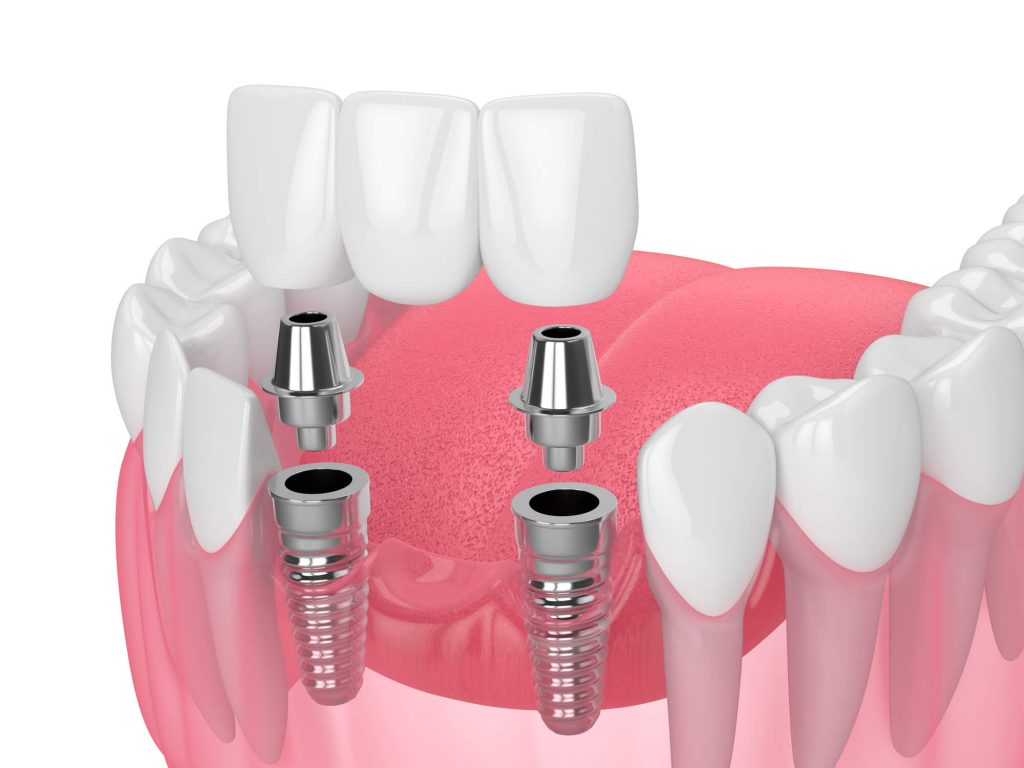Dental implants in Clayton are artificial tooth roots that your oral surgeon will insert into your jawbone. Once they are in your jawbone, ample time is needed to allow the implants to fully fuse with the surrounding bone tissues in a process called osseointegration.
After a successful osseointegration, your oral surgeon will place the artificial crowns over them to complete your smile. Dental implant surgery is an excellent option for people with one or more missing teeth. The amazing features of dental implants make them highly in demand because of their ability to mimic the look and function of natural teeth.
If you’ve decided to go for dental implants, here’s a lowdown of what you can expect during the procedure and what you should do after the surgery.

Dental Implant Placement: What to Expect
A Brief Overview of the Procedure
Dental implant placement is an outpatient surgery where titanium screw-shaped fixtures are placed inside your jawbone to mimic the function of natural tooth roots. These artificial roots provide a stable and secure foundation for your teeth to keep them in place.
This procedure requires multiple appointments to the dental office. The first one is your consultation, the second is the implant placement, and the third one is the attachment of your crowns.
Dental Implant Contraindications
Young children cannot get dental implants until their jawbone is fully developed. People who have leukemia and diabetes are not ideal candidates for dental implant surgery because these conditions negatively affect the healing process post-op. People who smoke are also not allowed to undergo surgery. Before you are scheduled for surgery, your oral surgeon will first screen you to check if you pass the eligibility criteria.
Dental Implant Process
Getting dental implants can take a few months to complete depending on how fast the implants integrate with your jawbone and how well your gum tissues heal. The following is a breakdown of what you can expect when getting dental implants.
- X-rays and scans may be ordered to allow your dentist to visualize your mouth and see where the implants will be positioned.
- Dental implant surgery is a minor operation. Your oral surgeon will anesthetize the area so that you won’t feel any pain during the procedure.
- A small incision is made in your gum tissues to expose the underlying jawbone.
- A tool is used to drill tiny holes in your jawbone where the implants are placed.
- Once the screw-shaped implants are in position, the gums around the implants are stitched back in place.
- Osseointegration can take a couple of months to complete. This is a process where the implants are given time to integrate with the bone tissues so they become permanent parts of your jawbone.
- When osseointegration is successful, your oral surgeon will apply the connectors or abutments.
- Lastly, the artificial teeth are cemented in place.
Dental implants are quite slow compared to other tooth replacement solutions since the entire process can stretch out for several months. However, the outcome is worth it since these implants are designed to last forever, which means you don’t need to have them replaced after 10 years or so.
Dental Implant Recovery
After the operation, it’s normal to experience slight pain, some bruising, and swelling in your gums and your face. Minimal bleeding in your gums is also expected. In addition, you will be ordered to go on a soft diet after the surgery to allow the site to heal.
Luckily, dental implants do not require special care. You just need to be consistent with your oral care routine. Make sure you brush and floss your teeth daily and visit your dentist regularly for oral exams and routine teeth cleanings.
Dental Implant Risks
There are risks involved in dental implant surgery, but they are rare. Some potential risks in dental implant placement include sinus problems, damage to the surrounding blood vessels, nerve damage, and infection.
Dental Implant Benefits
Dental implants are expensive, but if you think about their longevity and the fact that you don’t need to replace them, you’ll realize that you’ll save more money with implants. First, however, we suggest you ask your oral surgeon about the price. The overall cost can vary depending on how many teeth need to be replaced and the location.
Besides saving money, dental implants are aesthetically pleasing, strong, and durable.

Are You Scheduled to Get Dental Implants in Clayton?
If you’ve decided to get dental implants, knowing what to expect during and after the surgery is essential. Keep in mind that following post-op instructions is crucial to the success of your implants.
At Tyron Family Dentistry, we are committed to giving you the smile you have always wanted with our wide range of affordable and customizable dental treatments. Our office is fully equipped with state-of-the art technology to give you a comfortable experience. Call us today for a reservation.

